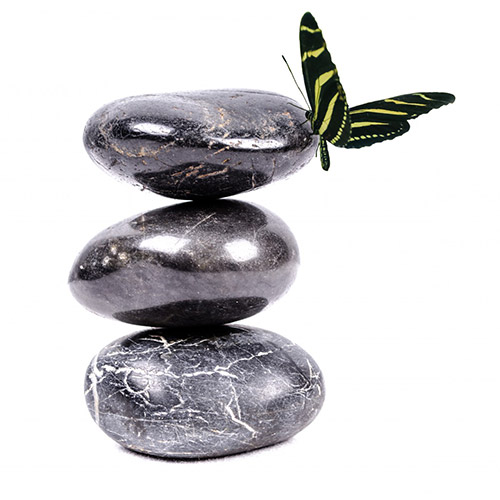Can Social and Sustainable Enterprise Create a More Sustainable World?
Voices in Sustainable Enterprise: A New Generation of Innovators
Ecology Prime is pleased to share the exceptional work and unique perspective of five bright minds from the Whitman School of Management, Syracuse University, Sustainable Enterprise course, of Fall 2021. Individually, the points of view shared by these independent thinkers, are timely and unique. Collectively, these voices beckon to a broader generational shift that has been underway, and which is becoming more inclusive, diverse, and focused on a shared pursuit of a more sustainable future.
Mark Coleman, adjunct instructor of Sustainable Enterprise and an award-winning author of three books on sustainability, introduced a class of 29 students to Sustainable Enterprise. The course’s content, purpose, and learning objectives are focused on providing the tools, methods, and understanding of how systemic changes influence business and entrepreneurs and consequentially, how business and entrepreneurs address the needs of society and create new paradigms through sustainable value. The course is part of a broader curriculum which prepares students to engage in transdisciplinary collaboration to develop sustainable solutions to complex organizational challenges. The essays and video presented here over the next weeks were submitted as the Sustainable Enterprise course’s final projects.
______________________________
Can Social and Sustainable Enterprise Create a More Sustainable World?
By Sophia Sparrgrove

It is a fact that our planet cannot support us without being sustainable and it is a fact we will only survive if we are sustainable. Sustainable enterprise is a type of enterprise model, wherein the goal of the company is to create a more sustainable world. Sustainability is the capacity to maintain a given standard of living over time, with a given set of resources, in a given environment. This is most often used in reference to environmental sustainability, but also applies to social and economic sustainability. Social and sustainable enterprise combines social responsibility and business growth including sustainable development. Sustainable development can be defined as development that meets the needs of the present without compromising the ability of future generations to meet their own needs. It is a concept that aims to balance social, economic and environmental considerations and today has gained strong support from businesses, NGOs and authoritative institutions such as the United Nations.
Sustainable business is a term used to describe the practices of businesses that are committed to the health and sustainability of the planet and its communities. Sustainable businesses are concerned with protecting the environment and how their future business practices will have an impact on their ability to generate and retain money. This is because they understand the potential costs of their actions on the environment and communities in which they operate.
Sustainable enterprise is a positive force for business but is broader than that. It is about creating a holistic and sustainable world where we live, work, and play; creating a life that is healthy, beautiful, and good for all. It is about the future of all people and all species and therefore the future of our planet. I personally believe in the human species to drive sustainability forward. It takes people to achieve sustainability, and sustainable enterprise is about people.
We have the power to make a difference, if we all share the passion to see sustainable development happen. I don’t believe in only one person making a difference and not another; I believe in every individual to make a difference. To do this, we need to make sure that we work together as a world community and that we are all working towards the same outcome by using our own skills and knowledge and that of the individuals that surround us. This includes business owners (both small and large), decision-makers, and people who can create real change in corporations.
We are increasingly moving away from an unsustainable global economy and are instead turning to sustainable models for business, industry, and local communities. There are many models of sustainability but what is key is that we are all now becoming aware of where our global footprint is and that we can all do our part to make the changes that are needed. People are realizing that we do not all have to live the same way and we no longer must consume the same way. We can learn to live within our means, learn to manage our resources more wisely and look at a new way of living where we can look after our planet in a positive way. Our society is becoming more and more aware of sustainability and of the impacts their lifestyle can have on the environment. With this shift in awareness and the movement towards a more sustainable future there will still be a lot of resistance to change – but it is inevitable that we move towards a more sustainable future. Sustainable enterprise can, will, and should play a big role in that as people’s preferences change to become greener.
The “green consumer” is a rising demographic that the small business owner would be wise to tap into as more and more consumers vote with their dollars against unsustainable brands. According to a 2020 study conducted by IBM, 8 in 10 consumers say sustainability is important, 70% would pay a premium of up to 35% for brands that are sustainable and/or environmentally responsible, 57% of consumers are willing to change their shopping habits in order to support more sustainable brands, and 71% said that traceability is very important and they would be willing to pay for a brand that provided it, and overall since 2014, global sustainability investment is up 68% which amounts to around $30 trillion. Millennials and Gen Z are leading the trend. At 72.1 million people and 67.1 million people, respectively, their dollars are powerful. They are more likely to shop sustainably and buy upcycled, resale, and consignment products. They are also more likely to own their own business. According to IBM, small business owners must do the following: (1) earn consumer’s confidence through transparency and traceability, (2) factor in consumer’s willingness to contribute to the cause, (3) leverage sustainability as a driver for end-to-end operations, and (4) align sustainability initiatives to core competency. Businesses seem to be evolving toward more green initiatives overall with large companies hiring Chief Sustainability Officers and focusing on greener choices to appeal to the public.
Smaller businesses make up 99.9% of the businesses in the United States at 31.7 million as of 2020, however, for them it is not as easy as simply hiring someone to implement sustainable alternatives. The burden of a sustainable future rests on businesses, including small businesses. They must be empowered to take control of their ecological impact. As an example, this semester in my Sustainable Enterprise course, my group developed Alter/Eco, the small business sustainability toolkit. Our company aims to be an affordable online consultant alternative that takes the time and stress out of researching and purchasing sustainable products. Our service matches small businesses, whether they be coffee shops, clothing boutiques, restaurants, or really anything, to the sustainable alternatives within their budget in seconds, taking the hassle out balancing profitability with thinking for the future of our planet. Additionally, Alter/Eco provides video sustainability consulting for an affordable hourly rate.
I firmly believe that we should be part of the solutions. We should not be part of the problems. It should be the businesses that are the ones to take the lead in these issues, that are the ones to make the changes and help the environment. Businesses should set the standards and the way things are done; however, the ecosystem includes everyone – businesses and consumers. As consumers are becoming more aware of going green, businesses must change with the times too. Many businesses operate within the confines of a business model that is inherently unsustainable because we operate on the assumption that we will continue to consume resources at the same rate as we have in the past. We cannot continue to expect that the environment will keep up with our demands. We cannot continue to expect that the economy will continue to improve, without causing harm to our planet’s environment. But we can change our practices within entrepreneurship, business, and as consumers, and it will have a greater impact on the environment if we all realize if we’re all in it together.
______________________________

Sophia Sparrgrove
Sophia Sparrgrove, originally from the Washington D.C. area, is a senior at Syracuse University majoring in Entrepreneurship and Marketing with a minor in Nutrition where she is President of the Entrepreneurship Club. She is passionate about environmental sustainability, creative design, entrepreneurship, and art.
______________________________
